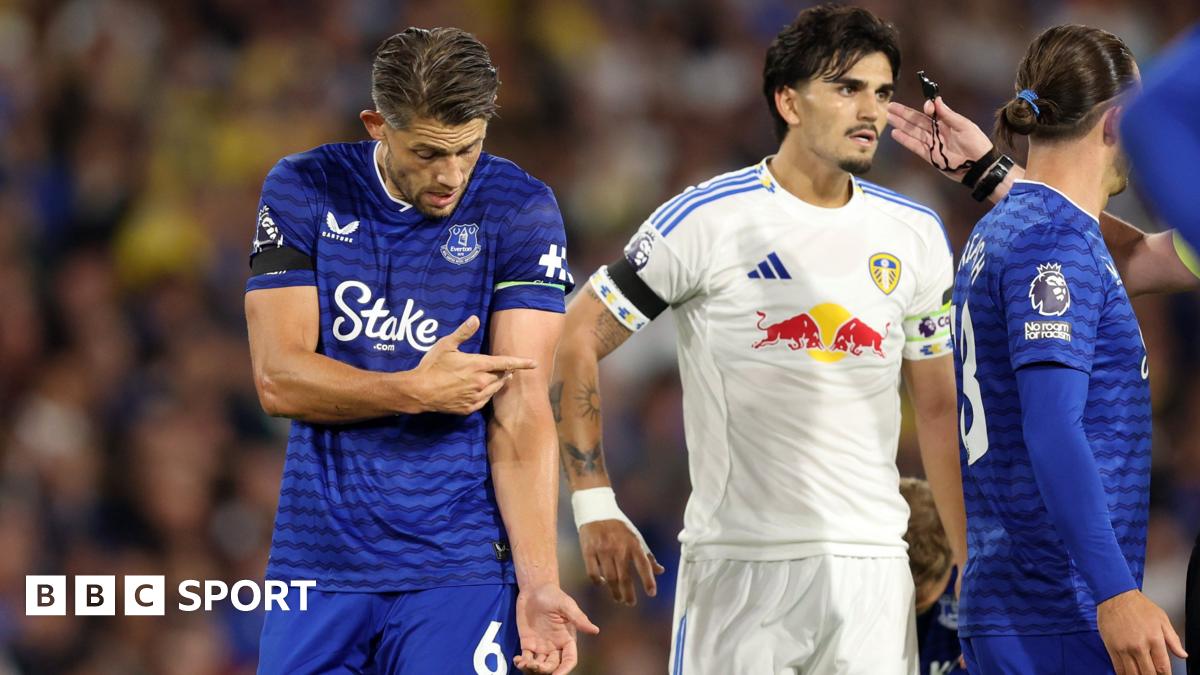'A scandal' - was Leeds penalty correct and what does law say?

Leeds United's Late Penalty Sparks Handball Debate in Everton Win
Leeds United secured a narrow 1-0 victory over Everton on Monday night, but the match was overshadowed by a controversial penalty decision that has ignited debate about the interpretation of the handball law. Lukas Nmecha converted the spot-kick after Everton defender James Tarkowski was adjudged to have handled the ball, leaving Everton manager David Moyes furious and questioning the consistency of officiating.
Contentious Call Decides Tight Encounter
The game, played at Elland Road, was a tightly contested affair with few clear-cut chances. The pivotal moment arrived in the second half when Anton Stach's shot struck Tarkowski, who had his arm close to his body. Referee Chris Kavanagh initially hesitated before awarding the penalty, a decision that was met with disbelief by the Everton players and bench. While Leeds celebrated a crucial three points, the focus immediately shifted to the legitimacy of the penalty award and the ongoing ambiguity surrounding the handball rule.
Tarkowski and Moyes Voice Their Displeasure
"As soon as the ref blew I was pretty confident it was going to get overturned," Tarkowski told Sky Sports after the match. "My first question was 'if my arm is by my side is it a penalty?' And he said 'no'. I've since read I leaned into the ball but there was nothing unnatural about my arm being by my side. I can't understand it. Bizarre."
Moyes echoed his player's sentiments, describing the decision as "wrong" and lamenting what he perceived as another poor weekend for referees in the Premier League. "I'm really disappointed and unless you cut the boy's hand off, I don't know where he goes," Moyes told BBC Sport. "I don't know if the crowd plays a part in it. I think it's a really poor decision. VAR [the video assistant referee] had a chance to undo it. They tried to say he was leaning to the ball - surely you're allowed to lean with your hands by your sides."
The Handball Law: A Source of Constant Controversy
Law 12 of the Laws of the Game dictates that a handball offense occurs when a player "touches the ball with their hand/arm when it has made their body unnaturally bigger." The FA's website further clarifies this, stating that "a player is considered to have made their body unnaturally bigger when the position of their hand/arm is not a consequence of, or justifiable by, the player's body movement for that specific situation."
However, the subjective nature of these guidelines has consistently led to inconsistent application and widespread frustration among players, managers, and fans. Prior to last season, the Premier League attempted to address these concerns by instructing referees to adopt a "less is more" approach, judging the position of the arm in relation to the player's body movement. This change was intended to reduce the number of penalties awarded for accidental handballs, but the Tarkowski incident suggests that the issue remains far from resolved.
Expert Analysis: Divided Opinions on the Decision
Former Premier League referee Peter Walton, speaking on BT Sport, suggested the referee made the correct call based on current interpretations. "While Tarkowski's arm was initially by his side, the replay clearly shows him extending his arm towards the ball, effectively blocking the shot. Under the current guidelines, that constitutes an unnatural extension and justifies the penalty award," Walton explained.
However, former Liverpool defender Jamie Carragher, while agreeing with the penalty decision, acknowledged the inherent difficulties in applying the handball law consistently. "The problem is the subjectivity," Carragher stated on Sky Sports. "What constitutes 'unnatural'? One referee might see it differently to another. Until we have a more objective measure, these controversies will continue."
Historical Context: The Evolution of the Handball Rule
The handball rule has undergone numerous revisions throughout the history of football, reflecting the ongoing struggle to balance the need for fair play with the desire to maintain the natural flow of the game. Early iterations of the law were often vague, leaving referees with considerable discretion. In recent decades, attempts have been made to provide more specific guidance, particularly with the introduction of VAR, but these efforts have often resulted in further confusion and debate.
Looking Ahead: Calls for Clarity and Consistency
The controversy surrounding the Leeds United-Everton penalty highlights the urgent need for greater clarity and consistency in the application of the handball law. While attempts have been made to simplify the guidelines, the subjective nature of the "unnatural" movement criterion continues to generate disagreement and frustration. As the Premier League season progresses, it is likely that this issue will remain a prominent talking point, prompting further calls for reform and a more objective approach to officiating.
Originally sourced from: BBC Sport Football
